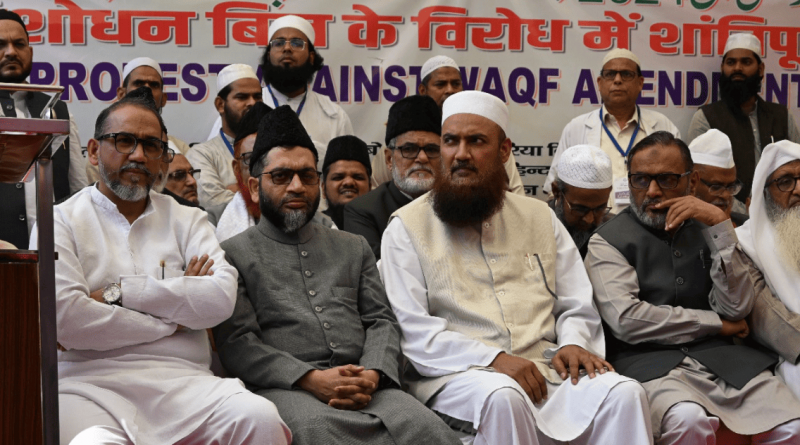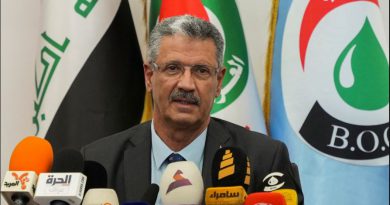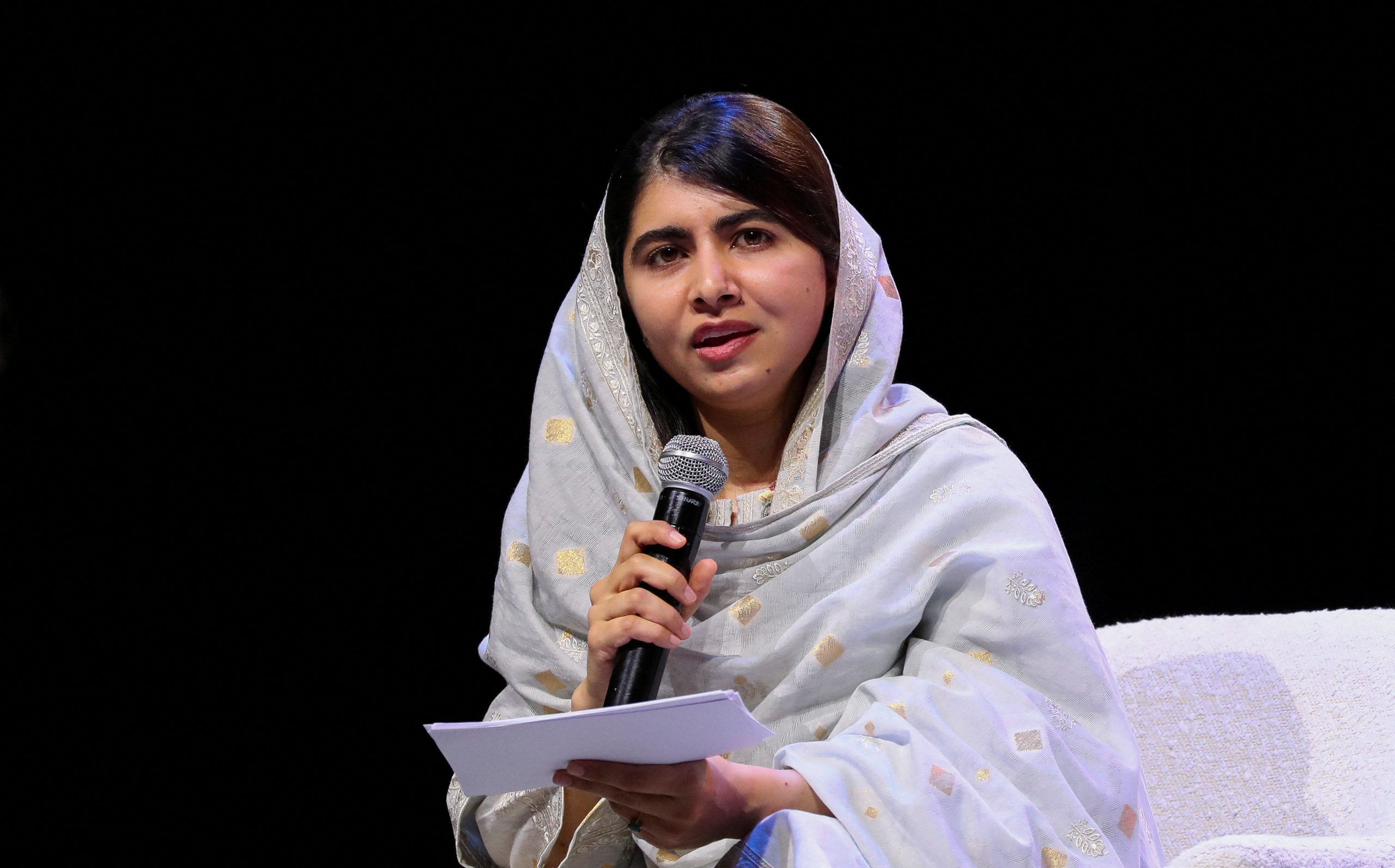OPINION: Is Muslim Leadership in India Just a Reactive Force?
Only then will Muslims cease to be ruled in the name of fear—and start living as full citizens of a republic they help build every day.
Since 2014, Indian Muslims have been caught in a spiral of fear and political confusion. The Bharatiya Janata Party’s ascent to power was, for many, a moment of rupture—a decisive break from the past. The party that had once taken responsibility for the demolition of the 16th-century Babri Masjid was now ruling from the centre. The wound of 1992, which forever communalized India’s political terrain, had now translated into a permanent sense of existential siege for Muslims.
In this atmosphere, Muslim anxieties have increasingly turned toward one phrase: “leadership”. A leadership that would represent them, defend their interests, articulate their pain, and resist the Hindutva offensive. But what exactly is “Muslim leadership”? Who defines it, and on what grounds? What are its aims? These questions remain unanswered.
Muslim Leadership: A Floating Signifier
Today, to speak of Muslim leadership is to walk into a semantic maze. Does it mean clerical authority? Electoral representation? Civil society mobilisation? Each comes with its own contradictions.
Groups like the Jamaat-e-Islami Hind (JIH), Indian Union Muslim League (IUML), and All India Masjlid Ittehad-ul-Muslieen (AIMIM) represent sharply divergent visions of Muslim politics—religiously, regionally, and ideologically. The aspirations of an AIMIM voter in Hyderabad may carry no resonance in Kerala’s IUML strongholds or in the doctrinally distinct spaces of Jamaat. There is no singular “Muslim aspiration”. The imagined unity of the ummah dissolves the moment it is brought into contact with India’s vast regional, sectarian, and linguistic diversities.
Since the demolition of Babri Masjid, a deep sense of alienation and hyper politicisation has festered among Indian Muslims. Meanwhile, the state has since encouraged a version of “Muslim politics” that is either wholly apolitical (clergy-centric), tokenistic (electing a few symbolic figures), or hyper-nationalist (Muslims defending the Constitution louder than anyone else) leaving virtually no space for any other form of articulation.
Crisis of Representation
India’s secular-liberal intelligentsia has also contributed to the crisis. They have internalised the logic that Muslims must only be represented by Muslims—an echo of the very communal logic that partitioned the subcontinent. This view romanticises identity but ignores class, ideology, and material politics. It reduces Muslims to religious subjects rather than complex social actors.
This has led to a strange tolerance for performative religiosity among Muslim representatives. A Muslim Member of Legislative Assembly (MLA) can openly celebrate Hindu festivals or avoid raising Muslim concerns altogether, and yet face no criticism—because their mere presence is deemed sufficient. As long as someone with a Muslim name occupies a post, the job is assumed done. This is not representation—it is throwing some crumbs so one of the them could sit amongst one of them.
Moreover, if Muslims demand their own leadership, can Hindus not do the same? Can the majority not claim the same right to religious self-organisation? This contradiction is rarely acknowledged. The logic of communal representation, if applied consistently, would end secular democracy altogether. It would lead us back to the very framework that justified Partition: that Hindus and Muslims are two separate nations.
Leadership or Reaction? The Crisis of Political Imagination
Muslim leadership today is primarily reactive. It is shaped by Hindutva offensives and often exists only as their mirror image. If a bill is passed against Waqf properties, the one who tears it up in the legislature is seen as a leader. If a mosque is threatened, the one who files a PIL becomes the saviour. This reactionary instinct lacks a long-term political programme. It can mobilise anger, but rarely build anything substantive .
The truth is stark: there is no democratic, transparent, pan-Indian Muslim body that can claim to represent Indian Muslims. The All India Muslim Personal Law Board is neither elected nor accountable. Political parties like AIMIM can only claim to represent a section of the Indian Muslims .
The Danger of Aspiration Without Direction
If the current trajectory continues, Muslim political energies will either be absorbed into Hindutva’s reactive machinery or dissipate into nostalgia and despair. The call for “our own leader” will remain an emotional impulse, not a strategic position. Worse, it will obscure the actual sites of Muslim suffering—education, housing, employment, incarceration.
There is no short cut. Muslims in India must participate not as a community but as citizens—in all their class, gender, and ideological diversity. They must build secular and democratic movements for justice, not reactive fronts for identity defence. The alternative is not another “Muslim party,” but an alternative from amongst the Muslims asserting themselves as the citizens of the largest democracy—shaping the future alongside others.
Conclusion: Representation is Not Redemption
The First-Past-the-Post system has no room for religious representation, and perhaps it should not. The solution to Muslim exclusion as citizens lies not in symbolic figures, nor in communally carved parties, but in becoming masters of their own fate and self introspection themselves as citizens.
To demand Muslim leadership is not wrong—but to mistake visibility for power, or identity for programme, is dangerous. Muslim leadership must cease to be a mythological hope projected onto charismatic individuals, and become a rigorous, grassroots, multi-class democratic project rooted in the struggle for dignity.
Only then will Muslims cease to be ruled in the name of fear—and start living as full citizens of a republic they help build every day.



